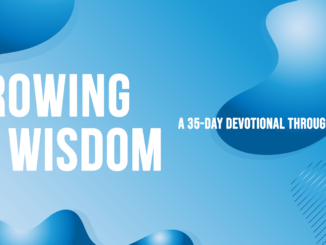
Unanswered prayer creates a huge problem for Christians. The Bible offers several easily understood reasons why God may be silent in response to our prayers: if I regard iniquity in my heart (Ps 66:18); if I pray selfishly (James 4:3); prayers that are vain repetitions (Matt 6:7); and insincere or lackadaisical prayer (James 5:16).
But what about the prayer of a righteous man, a man who prays fervently without iniquity in his heart? If we can understand the unanswered prayer of a man like this, then perhaps it will help us with our own unanswered prayers. Psalm 22 gives us a case study.
Psalm 22 is a psalm of David, written about a thousand years before Christ. We recognize the first verse from Christ’s words on the cross (Matthew 26:45): “My God, my God, why have you forsaken me?” In 1-5 the Psalmist explains that he has been forsaken by God; in 6-10 he explains that he has been forsaken by men. After a transitional verse (11) he begins his lament. And here we have a description of Christ’s crucifixion predicted about 1,000 years before it actually happened. Let’s remember David had never seen a crucifixion. It was a Roman punishment that came into Israel in 63 BC. In fact, according to Josephus when Titus came into Jerusalem to lay siege to the city (AD 70), he killed 1,100,000 Jews. It is said he denuded Israel of trees in order to crucify as many as possible. But let’s not miss this. This Psalm is proof positive the Bible contains supernatural revelation–knowledge of the future. David is describing the details of our Savior’s death without ever having witnessed a Crucifixion. Matthew 27:18 quotes Psalm 22:18, and so identifies the crucifixion of Christ as the fulfillment of the Psalm 22 prophecy. If you ever need to prove to an unbeliever the supernatural character of the Bible, just take him to Psalm 22.
But now in 19-21 we have the petition or prayer request of David/Jesus: “Save me.” Deliver my life, my most precious possession, from death. But apparently that prayer went unanswered. Jesus was not taken down from the cross. He died and was buried. The conclusions of men? 1) God is dead—there is no supreme, moral being in the universe; 2) God is deaf—He really doesn’t hear and answer prayer. But . . . the Psalmist believes God is alive and will answer him. In fact, the end of verse 21 claims God has answered the prayer.
In the last third of the Psalm we find the Psalmist praising God: 1) To Believers: God is not deaf because He hears and answers prayer (22-26); and 2) To Unbelievers: God is not dead because the Messiah will rule and a people will be “born” (27-31). But how can this be? Jesus died in verse 21. We can find only one solution: the resurrection took place between verse 21 and verse 22. Because of the resurrection Jesus could say that His prayer was answered, and it was answered at a better time and in a better way. If he had been taken down off the cross, there would be no redemption price paid for our salvation. And if he been taken down off the cross, there’re be no incorruptible, glorified body provided for our eternal life. So God answered Jesus’ prayer at a better time in a better way.
Likewise, we can find encouragement that many of our prayers will be answered at a better time and in a better way. But will you notice that Jesus did not see the ultimate answer to his prayer until the next life? He put one foot in this world and one foot in the next world. Only with a foot in both worlds could He see the answer to his prayer. It may be the same for us.
Our firstborn child was hit by a drunk driver and killed while walking across a street. He was in seminary preparing for missionary work in Kenya. Why did this happen? We don’t know. But we firmly believe many of our prayers for Jimmy will be answered in the next world.
During the Napoleonic Wars the English lined up on the Cliffs of Dover waiting for word of the battle between Napoleon and Wellington. They didn’t have telegraph, telephone, and certainly no internet. They communicated by semaphore across the English Channel, using mirrors to reflect one letter at a time. Slowly the message crossed the channel: W-E-L-L-I-N-G-T-O-N-D-E-F-E-A-T-E-D . . . and then a big fog set in. Doom and gloom swept the British Isles like a tsunami. Eight hours later the fog lifted, and they saw the rest of the message: W-E-L-L-I-N-G-T-O-N-D-E-F-E-A-T-E-D-T-H-E-E-N-E-M-Y. Unrestrained joy filled their hearts.
You see, we still live in the fog. We live on this side of Good Friday. But Jesus says there is more. Easter says there is more. One day we will have had a foot in both worlds and we will praise our God among the saints and the angels. And we will see that many of our prayers have been answered at a better time and a better way.
One day we will have had a foot in both worlds and we will praise our God among the saints and the angels. And we will see that many of our prayers have been answered at a better time and a better way. Click To Tweet


